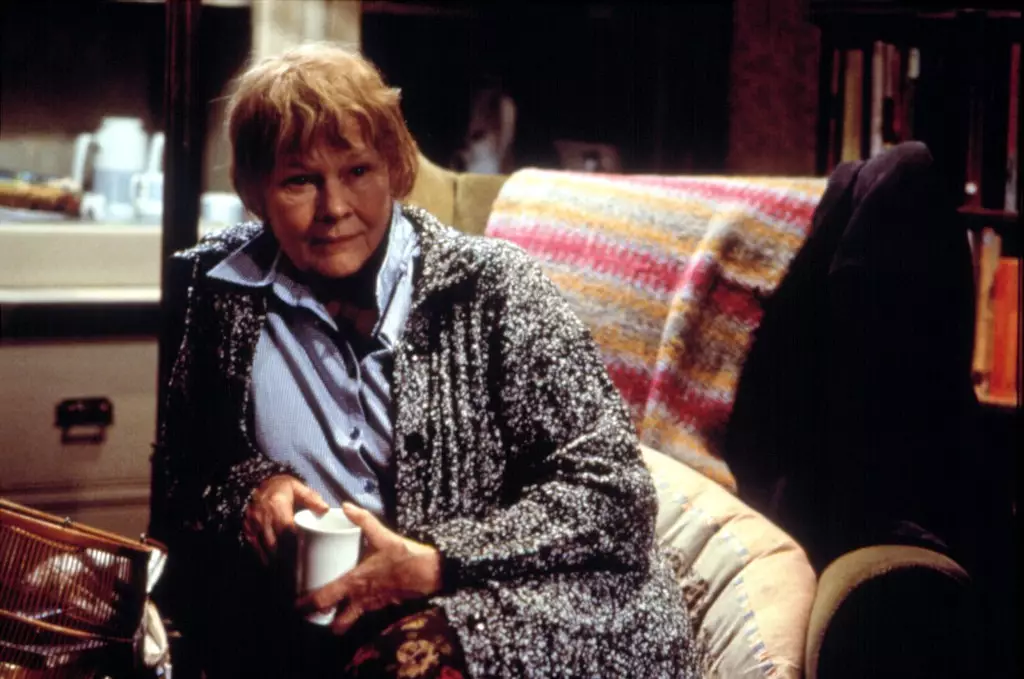Dame Judi Dench, renowned not only for her remarkable talent but also for her compassion, is raising her voice in an impassioned plea for systemic change within the UK’s healthcare system. Her involvement in highlighting dementia diagnosis, specifically while portraying the eminent author Iris Murdoch in the 2001 film “Iris,” offers her insights a profound authority. Dench is not merely advocating for awareness; she is urging the British government to take decisive action in improving the accessibility of timely and accurate dementia diagnoses. As this issue touches nearly a million people in the UK, the need for reform is undeniably pressing.
The statistics paint a bleak picture: one in three individuals diagnosed with dementia are living in a state of uncertainty, without a formal diagnosis. With waiting times in England stretching to nearly a year, the reality is that many people remain stranded in limbo. Those in underprivileged regions, often already under additional stress caused by economic disparities, face even longer delays, which adds insult to injury. It begs the question: how can a nation that prides itself on its National Health Service tolerate such deplorable conditions for those suffering from a debilitating illness?
The Human Toll of Delay
Dame Judi’s advocacy under the banner of Alzheimer’s Research UK’s “Dementia Unseen” campaign stands as a critique of the government’s recent decision to abandon a critical target aiming for 66.7% of over-65s to receive a diagnosis. This shift in ambition raises alarms regarding the government’s prioritization of deteriorating mental health services. What is more disheartening is the psychological toll that uncertainty takes on those affected; individuals are not merely awaiting a medical label; they are living through a gradual erosion of their identities, as Dench aptly describes.
Every citation of the word “dementia” should elicit immediate outrage and compassion, yet the system seems woefully indifferent. Families are left grappling with overwhelming emotional turmoil as they witness their loved ones’ cognitive decline, often armed with nothing but questions and fears. Without a diagnosis, these families miss critical opportunities to plan for the future, access treatment options, or even engage in potentially life-enhancing or comforting activities. Simply put, the absence of diagnosis can strip away any semblance of control over their circumstances during an already fraught time.
A Call for Systemic Overhaul
Alzheimer’s Research UK has set forth a practical framework advocating for timely referrals to specialists within six weeks and a complete diagnosis and treatment plan within 18 weeks. This roadmap is not just necessary; it is an ethical imperative that speaks to the dignity and rights of individuals living with dementia. Yet, despite this justified urgency, bureaucratic inertia continues to prevail. Why should we tolerate a healthcare system that drags its feet in addressing such a critical issue?
Hilary Evans-Newton, the Chief Executive of Alzheimer’s Research UK, aligns her advocacy with Dench’s sentiments by reinforcing the need for an efficient diagnosis to alleviate distress and uncertainty. Their call isn’t merely for bureaucratic expediency; it’s a rallying cry for the inherent rights of those living with dementia. Every person suffering from this condition deserves clarity and the opportunity for support systems that can emerge from an early diagnosis. The human rights implications are glaring, demanding not just compassion but also accountability from our leaders.
The Responsibility of Society
As this public health crisis looms larger, it forces society to confront its responsibilities: Should we wait idly by while a significant portion of our population lingers in uncertain solitude? Or will we rise as a collective to demand immediate change, starting from our very institutions? Dench’s participation serves as a vital reminder: the stories of those affected by dementia must be heard, and their plight must catalyze a sobering and urgently needed response.
Our empathy as a society shouldn’t be passive; it must manifest in pressure on decision-makers to recognize that dementia isn’t merely a medical issue—it’s a humanitarian crisis that deserves attention and respect. The time for action is not just imminent; it is overdue. It demands an uproar from us all so that we can restore hope and dignity to countless lives in a state of uncertainty.

Leave a Reply